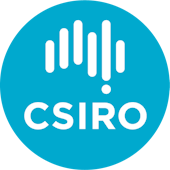Dr Natalie Dowling is a senior fisheries scientist, with CSIRO Oceans and Atmosphere in Hobart, Tasmania, Australia. She received her B.Sc. (Hons) and Ph.D. in Marine Science at Flinders University, South Australia. She joined CSIRO in 2000, when her main current area of interest is in developing harvest strategies in data-limited contexts, which remains a global scientific and management challenge.
Dr. Dowling was responsible for developing harvest strategies for Australia's Commonwealth small-scale and data-poor fisheries, and has subsequently consulted across a large range of other Australian and international fisheries, focusing on data-limited harvest strategies, assessments, and MSE. She has led projects to develop data-poor fishery harvest strategy guidelines for the Food and Agriculture Organisation (FAO).
From 2014-2016 Dr, Dowling was a member of the National Center for Ecological Analysis and Synthesis' Science for Nature and People Project (SNAPP) Working Group, “Managing Data Limited Fisheries for Economic and Biological Objectives”. Within this Working Group, she initiated and helped to develop the FishPath decisión support system. FishPath uses a questionnaire to provide customised guidance to users as to viable data-limited harvest strategy options, given a fishery’s specific circumstances. FishPath provides a standardised, comprehensive and efficient means to identify posible data collection, assessment, and management decisión rule options, together with relevant caveats associated with each.
Dr. Dowling works closely with The Nature Conservancy (USA) and NOAA as a core member of the FishPath team. Together, this team continues to develop, expand, refine, and apply the FishPath tool to fisheries within Australia, the United States, Peru, Kenya, Mexico, Jamaica, Bahamas, Indonesia and Spain, the latter in collaboration with the Marine Stewardship Council (MSC). Dr. Dowling leads the Australian effort to expand and roll out FishPath in Australia and the South Pacific region.
Dr. Dowling has published over 30 papers in the peer-reviewed literature.
Experience
-
–presentResearcher, CSIRO
- Article Feed
- Joined


